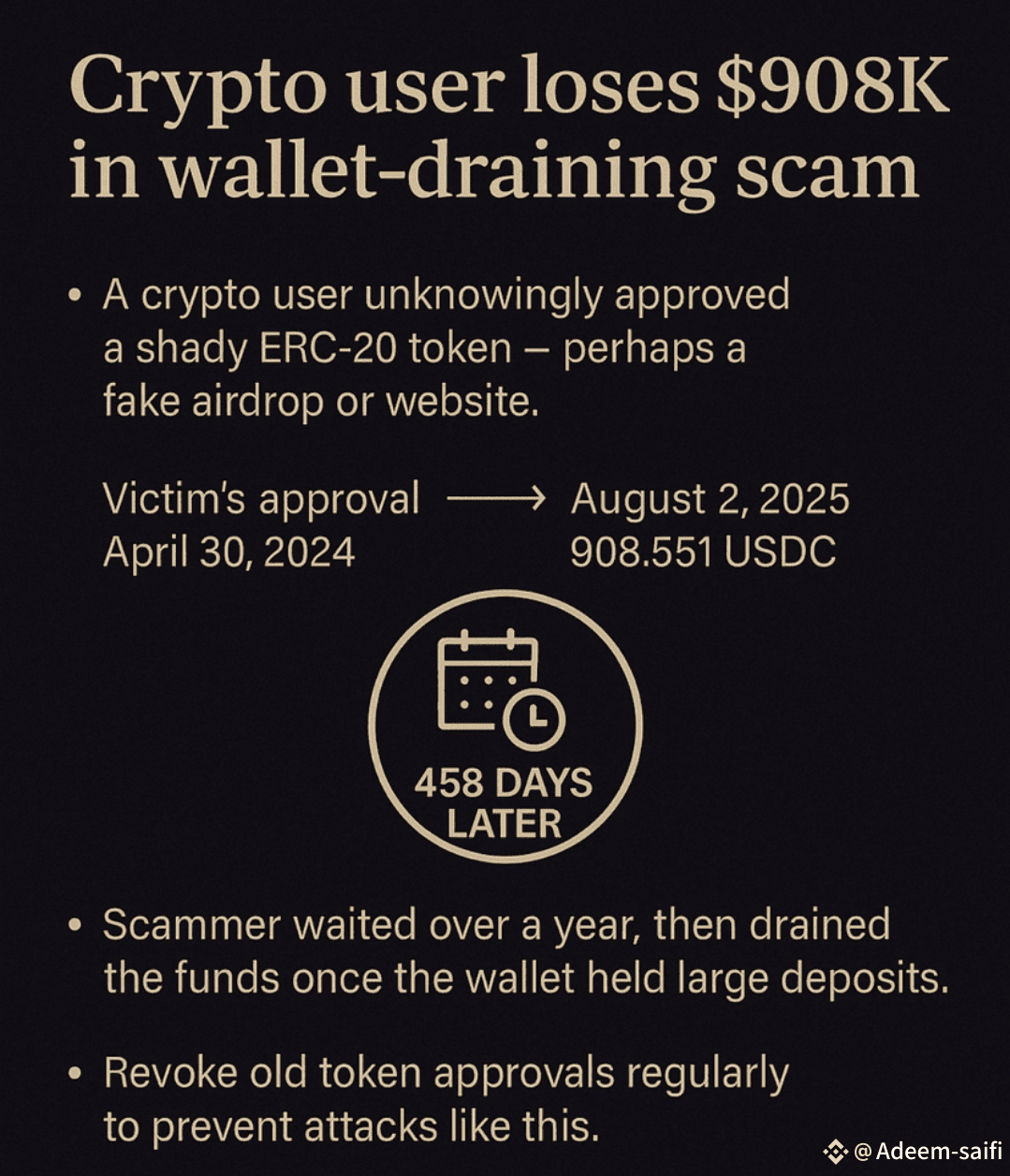Imagine waking up one day to find your life savings gone, drained from your crypto wallet without a trace. That's exactly what happened to one unfortunate investor, who lost a staggering $908,000 in a scam that was set in motion 16 months earlier. The victim, still reeling from the shock, lamented, "I signed it 16 months ago!"—a haunting reminder of how a seemingly innocuous action can lead to devastating consequences in the world of cryptocurrency.
The Silent Drain: How the Scam Unfolded
The scam in question revolves around a malicious smart contract that the victim unknowingly authorized over a year ago. Smart contracts are self-executing agreements with the terms of the contract directly written into code, often used in decentralized finance (DeFi) platforms to automate transactions. However, in this case, the contract was designed with a hidden clause that allowed the scammer to siphon funds from the victim's wallet at a later date.
According to cybersecurity experts, the victim likely interacted with a phishing site or a fraudulent DeFi platform that tricked them into signing a transaction granting sweeping permissions to the scammer. These permissions, often buried in complex code, can allow malicious actors to transfer funds without further consent. The scammer waited 16 months—possibly to avoid immediate suspicion—before executing the drain, leaving the victim blindsided.
A Growing Threat in the Crypto Space
This incident is not an isolated one. Silent drain scams, also known as "delayed theft" or "time-bomb" attacks, are becoming increasingly common in the crypto ecosystem. According to a report by blockchain security firm CertiK, losses from such scams have surged by 45% in the past year alone, with attackers exploiting the irreversible nature of blockchain transactions.
"Crypto users often underestimate the risks associated with signing smart contracts," says Dr. Emily Carter, a cybersecurity specialist. "Once you grant permission, it's like handing over the keys to your digital vault. Scammers can strike at any time, and by the time you notice, it's too late."
The Psychological Toll
Beyond the financial devastation, the emotional impact on the victim is profound. Losing nearly a million dollars overnight is not just a monetary loss—it's a violation of trust and security. Victims of such scams often experience feelings of guilt, shame, and helplessness, compounded by the decentralized and often anonymous nature of crypto transactions, which makes recovery nearly impossible.
"I keep replaying that moment in my head," the victim shared. "I thought I was being careful, but clearly, I wasn't careful enough. It's a nightmare."
Protecting Yourself: What Can Be Done?
While the crypto space offers immense opportunities, it also demands heightened vigilance. Here are some steps investors can take to safeguard their assets:
Verify Before You Sign: Always double-check the authenticity of any platform or contract before signing. Use trusted sources and avoid clicking on suspicious links.$ETH
Understand Permissions: Be wary of contracts that request broad permissions, such as unlimited token approvals. Use tools like Etherscan to review contract details.
Regularly Monitor Wallets: Set up alerts for unusual activity and periodically review wallet permissions to revoke any unnecessary access.$XRP
Educate Yourself: Stay informed about common scam tactics and emerging threats in the crypto space. Knowledge is your first line of defense.
Conclusion: A Call for Caution
The $908,000 silent drain scam serves as a stark reminder of the risks lurking in the shadows of the crypto world. As the industry continues to evolve, so do the tactics of malicious actors. Investors must remain vigilant, question every transaction, and seek professional advice when in doubt. In a space where a single signature can lead to irreversible loss, caution is not just advisable—it's essential.#Cryptoscam #WalletSecurity #BinanceFeed #SecurityTips #BinanceHODLerTOWNS